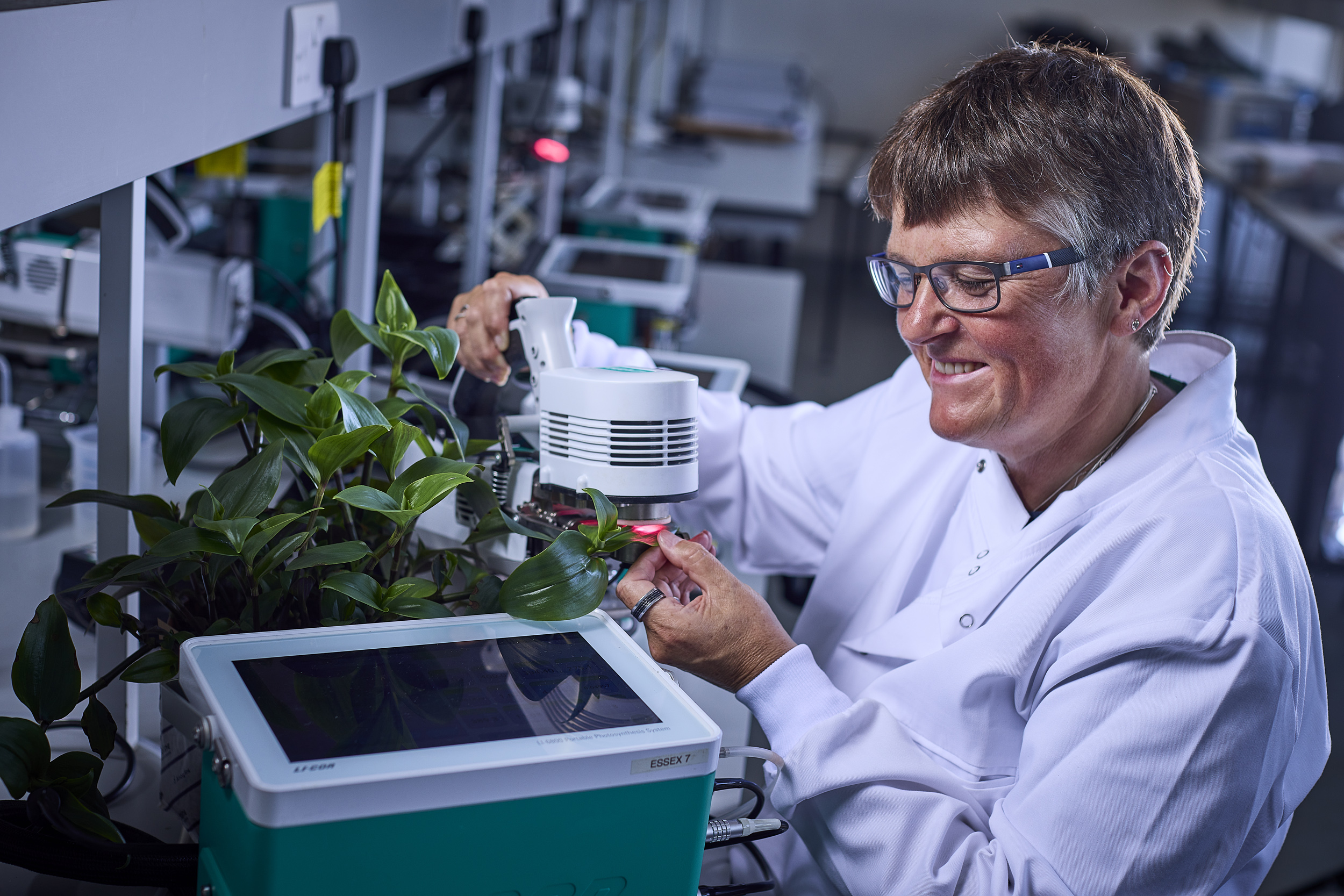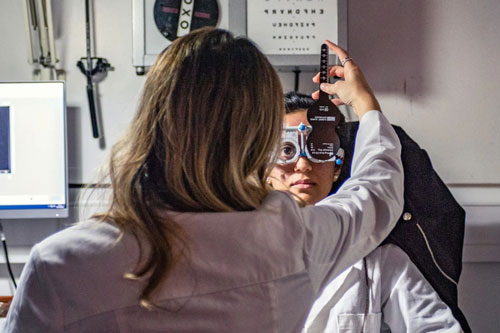Overview
For nearly half a century, the University of Essex has been a global leader in photosynthesis research – exploring how plants convert sunlight into energy and how we can make this process more efficient. Our scientists are driving innovation to meet one of the world’s greatest challenges: ensuring everyone has enough to eat. By improving how plants use sunlight and cope with environmental stress, Essex researchers are helping to build a sustainable future for global food production.
The Challenge
By 2050, the global population is expected to reach 9.7 billion. Feeding this growing population requires a major step-change in how we produce food. Agriculture must deliver higher yields while using fewer resources such as water and fertiliser, and must also adapt to the realities of climate change – from droughts to heatwaves and unpredictable rainfall. Improving photosynthesis offers a powerful route to increasing crop productivity and resilience, supporting global food security and the UN’s Sustainable Development Goals.
Partnerships
Essex’s expertise in plant productivity made it a founding partner in the RIPE (Realizing Increased Photosynthetic Efficiency) project, launched in 2012 and based at the University of Illinois. RIPE aims to engineer staple food crops that capture and use sunlight more efficiently, helping smallholder farmers in sub-Saharan Africa and Southeast Asia. Supported by the Bill & Melinda Gates Foundation, the Foundation for Food and Agriculture Research, and the UK’s Foreign, Commonwealth & Development Office, the project brings together world-leading institutions to end hunger through science and innovation.
Research
Researchers in Essex’s School of Life Sciences study how plants respond to stress caused by water shortages, temperature changes and light fluctuations. Their “whole organism” approach examines the genes and processes that determine how well plants grow and survive under challenging conditions. Building on this expertise, the Essex Plant Innovation Centre (EPIC) connects our research with the horticultural and agricultural industries to develop real-world solutions. EPIC’s new Smart Technology Experimental Plant Suite (STEPS) – a £3.5 million, state-of-the-art growth facility funded in part by the Wolfson Foundation – will allow scientists to recreate outdoor environments indoors to better understand how crops can thrive in changing climates.
Impact
Essex research is helping to boost crop productivity, improve water-use efficiency and develop plants that perform better in a warming world. Through global collaboration and local innovation, we’re harnessing the power of the sun to help feed the world.




